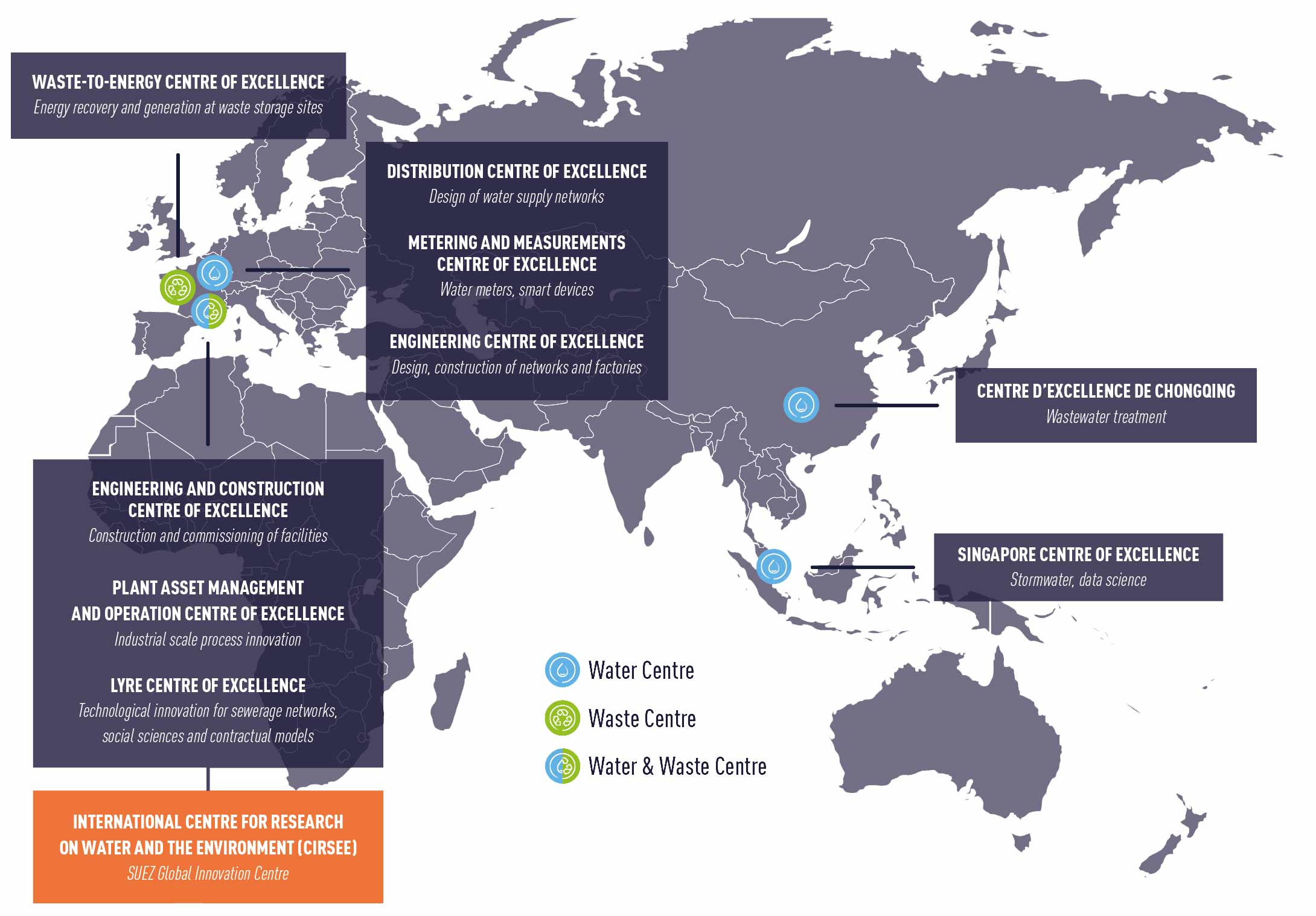10 R&D centres of excellence in France and Asia
We offer 10 research centres of excellence in France and Asia to help address current and future challenges in terms of water and waste management. These are the driving force behind our innovation.

CIRSEE: the International Water and Environmental Research Centre
The Paris-based International Water and Environmental Research Centre or CIRSEE (Centre International de Recherche Sur l'Eau et l’Environnement) develops future-led solutions in the areas of drinking water production, wastewater treatment, waste recycling, management of public health and environmental risks, and data analysis
CIRSEE has 120 researchers, engineers and experts across three sites (Le Pecq, Croissy, Narbonne) and seven research platforms:
- physicochemical treatment for drinking water production (TREATlab)
- biological processes for wastewater treatment (BIOPROCESSlab)
- plastics from recycled products (PLASTlab)
- ultrafiltration, nanofiltration and reverse osmosis membranes (MEMlab)
- sensors and measurement solutions (SENSORlab)
- organic waste recovery (BIORESOURCElab)
- water chemistry and materials for distribution networks (PIPElab)
- As well as a cross-disciplinary team dedicated to health and environmental issues and three state-of-the-art water, materials and biology analysis laboratories.
Le LyRE
Le LyRE innovates to optimise water management and limit the impact of cities on their environment.
Located on the Bordeaux University campus, our research centre of excellence initiates, supports and coordinates research projects involving universities, businesses and public or private sector bodies.
We also have a Le Lyre centre specialising in human, social and behavioural science (sociology, behavioural economics, social psychology, etc.). The aim is to understand users and their expectations, find out what they know – about the water cycle or the issues associated with recycling – and identify practices to achieve change.
Singapore Research Centre
Chongqing Sino-French Environmental Research and R&D Centre
Our network of experts
We aim to innovate for the environment while also responding to your needs. This is done with the support of our in-house network of 1,300 experts who work daily at our 10 research centres to build a more sustainable future with you and for you.
At SUEZ, our technical experts play a key role in resolving complex issues concerning areas related to water and waste management, as well as cross-discipline activities such as health, carbon and data. Their in-depth expertise enables them to develop innovative long-term solutions to address the main issues of our time.
Expertise in figures
We currently hold over 1,800 patents, including in particular:
- Remote meters, allowing for accurate monitoring of consumption and optimising water use at the level of public networks.
- Les Degrés Bleus, an innovative process that recovers heat from wastewater to produce renewable green energy that can be used for heating and air conditioning in buildings.
- AUTODIAG, a smart camera able to recognise different materials in waste sorting.
Meeting your needs as closely as possible
Who are our experts ? | They are SUEZ
Credit: SUEZ group
